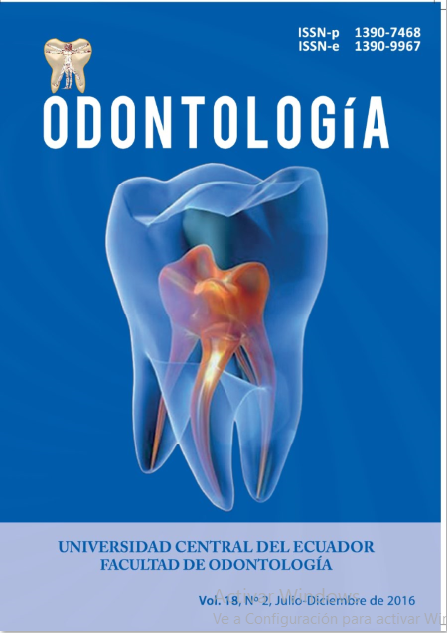Inhibition of streptococcus mutans with aqueous extract and oily rosmarinus offi-cinalis “rosemary”
Keywords:
Pediatric dentistry, microbiology, phytotherapyAbstract
Objective: Determine the inhibition of bacterial growth in vitro of Streptococcus mutans, using aqueous and oily Rosma-rinus officinalis (rosemary) extracts with microbiological disk diffusion technique. Materials and methods: This study evaluated the antimicrobial action of S. mutans ATCC 25175 with a disk diffusion technique in a solid environment. Two groups of 15 samples each in Petri dishes consisted in: G1: 1.5% and 3% aqueous extract; G2: 50% oily extract. Each of the groups had Chlorhexidine 0.12% positive control and a distilled water negative control. The U Mann Whitney statistical test was applied with a 5% significance level. Results: Aqueous extracts and distilled water produced an inhibition halo of 0 mm. The oily extract produced an average of 11.93 mm inhibition halo (p <0.001), versus Chlorhexidine with a 16.13 mm (p <0.001) average inhibition halo. No differences were found between the oily extract and chlorhexidine (p <0.05). Conclusions: Aqueous extract of rosemary has no antibacterial effect on S. mutans. Oily rosemary extract has antibacterial action on S. mutans similar to chlorhexidine.


